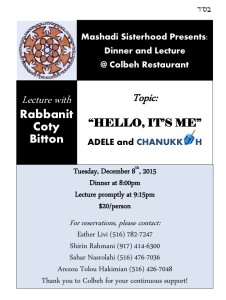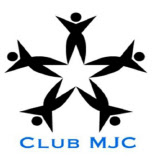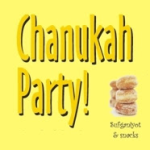Parashat Vayigash!
Dear Friends;
I hope that you’ll enjoy the following Parsha summary followed by a Dvar Torah;
” Parsha in a Nutshell “
Judah approaches Joseph to plead for the release of Benjamin, offering himself as a slave to the Egyptian ruler instead of Benjamin. Upon witnessing his brothers’ loyalty and the love for one another, Joseph reveals his identity to them. “I am Joseph,” he declares. “Is my father still alive?”
The brothers are overcome by shame and remorse, but Joseph comforts them. “It was not you who sent me here,” he says to them, “but G-d. It has all been ordained from Above to save us, and the entire region, from famine.”
The brothers rush back to Canaan to tell their father the good news of Joseph being alive. Jacob comes to Egypt with his sons and their families — seventy souls in all — and is reunited with his beloved son after 22 years. On his way to Egypt he receives the Divine promise: “Fear not to go down to Egypt; for I will there make of you a great nation. I will go down with you into Egypt, and I will also surely bring you up again.”
Joseph gathers the wealth of Egypt by selling food and seed during the famine. Pharaoh gives Jacob’s family the fertile county of Goshen to settle, and the children of Israel prosper in their Egyptian exile.
” Dvar Torah “
The most dramatic reunion in the Bible, and probably in the history of mankind, is recorded in this week’s parsha. Jacob reunites with his beloved son, Joseph! After twenty two years of living in misery and sorrow, thinking that his favorite son is dead, Jacob is suddenly informed that Joseph is still alive and well. Although, he was hesitant at the beginning to believe such an unimaginable news, but after seeing all the chariots and the entourage for his honor, his spirit was revived and he said “my son Joseph is still alive. I shall go and see him before I die”. So he rushed down to Egypt to meet Joseph face to face. The scene of their meeting is every writer’s dream to show off his talent. Every writer has the ability to revive the scene for us by describing in detail their inner feelings, their facial expressions, their emotional reactions and their exchange of words at the time of their encounter. How loud did they cry? How long did they embrace? Who said the first word? What did they say to each other after 22 years? If only I was a writer………..
Well, let’s see what the writer of all writers, the G-d Almighty, has to say about this affectionate reunion in his holy Bible.
Yet, strangely enough, the Torah doesn’t talk much about this dramatic scene. It just says that at the time of their meeting, Jacob apparently remained emotionless and silent while Joseph wept. Rashi, the famous Torah commentator, explains that Jacob was reciting the “Shema” or was having a conversation with the Almighty at the time. He explains that in all the years of their separation, Jacob was in a depressed mood and the Divine Spirit had departed from him and he was therefore unable to communicate with G-d. Now that he saw Joseph in front of his eyes, alive and well, the joy of the moment allowed the Holy Spirit to return to him once again and he used the opportunity to communicate with the Almighty.
But even if we accept Rashi’s commentary, it still doesn’t justify Jacob’s lack of emotions. Surely, he could have recited the Shema, and at the same time, he could have shown some signs of joy on his face, or even let a few drops of tears run down his cheeks. I’m having a hard time controlling my tears just writing about this! How could Jacob show no signs of affection?!
What is more mind boggling, is that Jacob never reveals any emotions later on either. He never asked any questions regarding Joseph’s disappearance from Joseph or his brothers?! So many unanswered questions! How did Joseph end up as ruler of all Egypt? Why didn’t Joseph come and visit his father when he was in power? And above all, how did Joseph disappear in the first place? Jacob’s lack of curiosity raises a bigger question. Was Jacob, G-d forbid, a heartless person who didn’t care about his children??
Well, once again, Rabbi Frand quoting Sforno, gives a beautiful explanation which really touched my heart. He says that Jacob was well aware of the tensions that existed between Joseph and his brothers. He also realizes that his sons mislead him when they showed him Joseph’s bloody gown. And being a prophet, he probably knew what exactly had happened between Joseph and his brothers, since later on, on his deathbed he says to Joseph: ” I know, my son, I know.” But he chose to be silent, since he saw that his sons are all reunited again, and that was all that mattered to Jacob; to see his children living in peace and harmony together! He didn’t show any emotions to Joseph, because any sign of emotions would have revealed the painful years that Jacob had to go through, which Joseph would have blamed his brothers for. He knew very well that any show of emotions or asking questions will only rip open a scab on a wound that has to healed slowly and carefully. He realized that sometimes you have to let go of the past in order to build a better future. He knew that his children are going to be the heads of the Jewish nation, and the secret to Jewish survival is “UNITY”. So he didn’t ask any questions, since any question would have ended up blaming one party or the other, and would have created friction or separation between them again. He didn’t want to play the “blame game”, but rather, he wanted to play along with their “unity”!
Yes my friends, once again, the Torah is teaching us the importance of unity. It’s so important that we have to do anything in our power to preserve it. Accordingly, for the sake of unity, sometimes you have to hide your emotions. For the sake of unity, sometimes you have to keep silent. And for the sake of unity, not every family secret needs to be publicly revealed nor every family feud needs to be brought up, again and again.
Everyone makes mistakes in their lives. But if we are not willing to forgive and forget, then relationships can be very fragile. Family relationships are based on forgiveness. The Torah commands us not to hold a grudge, because holding a grudge will create separation and that’s not what Hashem wants from us. He wants us to get along with one another, even with those who have done us wrong. He wants us to forgive in order to be together. If Joseph could find it in his heart to forgive his brothers and if Jacob can let go of 22 years of misery and suffering for the sake of unity, then why can’t we??
Nothing gives more pleasure than to see your children live in peace and harmony together. David HaMelech with all his power, unfortunately, couldn’t get his children to get along, and longed for the day to see them being united. So, all he could do was to inspire the future generations by putting down his dream onto the paper: הִנֵּה מַה טוֹב וּמַה נָּעִים שֶׁבֶת אָחִים גַּם יַחַד”…….. “Behold, how good and how pleasant it is, when the brothers dwell together in unity!”
Shabbat Shalom & Regards;
Martin
Sunday Morning Parasha Class with Rabbi Adam
R. Adam’s Sunday Morning Parasha Class
Our Sunday Morning Parasha Class is on for this week (Dec. 20). We will be studying Parashat Vayechi!
A special thanks to this week’s sponsor for breakfast, Mr. Joshua LeVian, in honor of his fiancee, Miss Alexandra Zar!
Breakfast will be served at 9:45 am, the class is 10 am – 11 am, at 54 Steamboat Road.
Sunday Morning Parasha Class with Rabbi Adam
R. Adam’s Sunday Morning Parasha Class
Our Sunday Morning Parasha Class is on for this week (Dec. 13). We will be studying Parashat Vayigash!
We are having a SPECIAL HANNUKA BREAKFAST this week! A special thanks to this week’s anonymous sponsor for breakfast, for the refuah shelema of Avraham ben Tamar!
Breakfast will be served at 9:45 am, the class is 10 am – 11 am, at 54 Steamboat Road.
SHALOM WEEK #10-WEDDING PICS-2
SHALOM WEEK #10-WEDDING PICS-1
SHALOM WEEK #10–Dec 12 2015
Ping Pong Tournament
Single’s Tournament – All Ages. Date: Sunday 1/24 – Time: 2:00 – 8:00 PM – Fee: $10 per person – Location: Ohr Esther.
Double’s Tournament – All Ages. Date: Sunday 1/31 – Time: 2:00 – 6:00 PM – Fee: $10 per person Location: Ohr Esther
Please Contact: Herzel Hakimi 516-662-2913. No early registration required
Camp MJC is Now Hiring
After our fantastic first year, we are already hard at work on Camp MJC 2016! We are starting to hire Morahs (for grades K-1), counselors, lifeguards and junior counselors, and would like to give community members the opportunity to apply for these positions. Join us for another unbelievable summer of fun and paid work experience! Please contact us ASAP at jobs@campmjc.org or call Tali at (516) 640-0077 if you or your child would like to apply for a summer job. Age 16 and up please. Job availability is very limited. No positions can be guaranteed.
Parashat Vayeshev!
“ Dear Friends;
I hope that you’ll enjoy the following Parsha summary followed by a Dvar Torah;
” Parsha in a Nutshell “
Jacob settles in Hebron with his twelve sons. His favorite is seventeen-year-old Joseph, whose brothers are jealous of the preferential treatment he receives from his father, such as a precious colorful coat that Jacob makes for him. Joseph relates to his brothers two dreams he has which foretell that he is destined to rule over them, increasing their envy and hatred towards him.
Jacob sends Joseph to check up on his brothers who are tending the flock away from home, and upon seeing him approaching they plot to kill him. Reuben convinces the brothers not to kill Joseph, but is unable to totally save him as the brothers sell Joseph into slavery in Egypt. The brothers dip Joseph’s special coat in the blood of a goat and show it to their father, leading him to believe that his most beloved son was devoured by a wild beast.
The Torah deviates from Joseph’s story to relate the story of Judah and his daughter-in-law Tamar.
The narrative then returns to Joseph in Egypt, where he becomes an extremely successful slave and is placed in charge of his master Potiphar’s household. Potiphar’s wife repeatedly tries to seduce Joseph, and when he refuses her advances, she screams and claims that he tried to rape her. Joseph is thrown into prison where he is once again placed in a position of leadership, this time being put in charge of the prisoners. Ten years later, Pharaoh’s chief butler and baker are thrown into the same prison. One night they each have a perplexing dream which Joseph accurately interprets, and the portion concludes as the butler is returned to his former post and the baker is executed, just as Joseph had predicted. But the butler forgets all about Joseph and does nothing for him.
” Dvar Torah “
“Joseph”! Is by no doubt everyone’s favorite biblical character! The most dramatic story of the bible, if not of all times, which brings tears to everyone’s eyes, year after year after year, with no doubts, belongs to our beloved Joseph. Although, Joseph was not considered to be one of our Patriarch, yet he has more Torah portions designated to him than any of our Forefathers. Four Parashiot to be exact, does the Torah dedicate to our beloved Joseph. Although he was famous for his charm and beauty, but our sages give him the title of “Yosef HaSadik”, Joseph the righteous. Joseph earned his title of righteousness (HaSadik) because he had control over his desires, and because he was trustworthy and honest. His honesty, gained him the full trust of his master, his prison warden and the King Pharaoh himself. But the name “Yosef HaSadik” wouldn’t have been sealed, if he wouldn’t have forgiven his brothers for the cruel act of selling him into slavery and separating him from his father for so many years. Because of this unexpected act of forgiveness, not only Joseph is adored by everyone, but he became the symbol of righteousness!
But it seems that even the best of us are not flawless. The Torah reveals to us that Joseph didn’t go through life mistake free either. At the beginning of the parsha the Torah says: “Joseph at the age of seventeen, was a shepherd with his brothers, but he was a “Na-ar” among the sons of Bilhah and Zilpah,…..”
The word “Na-ar” means a young lad, a teenager, but Rashi explains that when the word Na-ar is used in the Torah, it’s a sign of immaturity. Rashi says that Joseph used to fix his hair and touch up his eyes so that he would look handsome, and that was the immature act that labeled him as a Na-ar. Although the majority of the Chachamim agree that Na-ar is a sign of immaturity, but some of them are not satisfied with Rashi’s explanation. Just because Joseph was fixing his hair, does not justify that he was an immature person! Yosef was 17 years old at the time, and fixation of hair is not unusual behavior for a 17 year old to do. For some of us, it’s a dream to be able to run that comb through our hair or use a blowdryer once in awhile! I would even do it at this age, if I had the opportunity!!
Rabbi Shimon Schwab gives a beautiful explanation to what was the reason for Joseph’s immaturity. He says that Joseph’s immature act wasn’t about looking handsome at all, but rather, it was something else. The Torah uses the term “Naar”, once before, in last week’s parashat VaYishlach in reference to Shechem, son of Chamor. “And the ‘naar’ did not delay to carry out the matter (of circumcision) because he desired Yaakov’s daughter.” At this point in time Shechem son of Chamor was not a teenager. He was in fact one of the most prestigious people in the city. So why does the Torah refer to him as a ‘naar’? Rav Schwab explains that Shechem may have been an adult, he may have been a respected individual, but he still acted immaturely because he rushed into the agreement proposed by Shimon and Levi without thinking it through. And that is the definition of a ‘naar’ or immaturity; someone who rushes into making a decision without thinking it over!
Rav Schwab says, Yosef knew that he would be a leader over his brothers. Yosef foresaw this, prophetically, in his dreams. He, rightfully, envisioned that they would bow down to him and that he would be a King one day. One of the laws of monarchy is that the King has to be physically prominent. The Talmud states that a King must groom his hair daily. He represents the people and he must have the type of handsome appearance that people can respect. So, when the Torah says that Yosef acted as a ‘naar,’ he explains that Yosef’s mistake was that he already saw himself as the King at the age 17– it was not an adolescent fixation of the hair! He saw himself as the ruler over his brothers before the proper time for that relationship has developed. He wanted to be a king so badly that he forgot that he is still a “na-ar’, a young lad who is not mature enough yet!!
Yes my friends, the Torah is telling us that rushing into making decisions is an immature behavior, while patience and thoughtfulness is a sign of wisdom and maturity. Unfortunately, many of us still act like a “Na-ar”! We all want everything to be done for us, ‘yesterday’. We all want to get rich quickly. We all want to find our soul-mate in no time. When we are faced with problems or misfortunes in our lives, we quickly become impatient and we wonder why are these things happening to us. Remember that Joseph went through a lot of hardship in his life, until finally, he became the ruler of Egypt. We should not rush into making decisions. We should think things over and weigh things out before making a decision. Marriage relationships have been lost over a simple disagreement. Lifetime friendships have been lost over a feud. And all because they made a quick irrational decisions!
Keep in mind that there is nothing wrong with looking handsome. Fixation of hair is not a sign of immaturity, but making quick irrational decision is! So those of you with the full set of hair, go ahead and use your brush, hairdryer and hairspray. We might be jealous of you, but we certainly won’t think of you as being childish……
Shabbat Shalom, Happy Chanukah & Regards;
Martin
Weizmann Institute Shabbat Luncheon – Dec 5
You are cordially invited to a Unique Shabbat Luncheon In Celebration of Scientific Achievements and Innovations at the Weizmann Institute of Science And to Celebrate the Memory of Community Leader and Dear Friend Behrouz Nissan Dilmanian, z”l. Saturday, December 5, 2015 at 1:00 p.m. Shiraz Restaurant, Great Neck. Couvert: $35/person. There will be no solicitation of funds. To RSVP or for more information, please contact Roya Dilmanian at royadilmanian@aol.com. Hosts: Roya Dilmanian • Ruth Kamali.
Amazon Smile: Continue giving to UMJCA
All you have to do is go to www.smile.amazon.com click on supporting and choose United Mashadi Jewish Community of America. It’s that simple. From that point on UMJCA will receive 0.5% on your purchases. Please make sure you save Amazon Smile link in your browser in order for all your future purchases qualify for your charity. For Chrome users you can follow the same steps by going to http://www.smilealways.io/. This is a very easy to give back to your community without any cost to you. Please sign up now!
Religious Council Announcement: We do not encourage attendance at any restaurant at the mall and further request that members of our community refrain from using any registered accounts at any restaurants at the mall as funds received from such establishments cannot be used by our community.
Dinner & Lecture with Rabbanit Coty Bitton
MASHADI SISTERHOOD PRESENTS:
DINNER & LECTURE WITH RABBANIT COTY BITTON
“Hello, It’s Me” Adele and Chanukkah. COLBEH Restaurant. Tuesday, December 8th, 2015. Dinner at 8:00pm – Lecture promptly at 9:15pm. $20 per person.
** Reservations Required ** For reservations, please contact: Esther Livi (516) 782-7247, Shirin Rahmani (917) 414-6300, Sahar Nasrolahi (516) 476-7036, or Arezou Tolou Hakimian (516) 426-7048.
SHALOM WEEK #9-WEDDING PICS-2
SHALOM WEEK # 9-WEDDING PICS-1
SHALOM WEEK #9—Dec 5th 2015
Club MJC
We are proud to announce a new program for our community youth called Club MJC. It will be for boys and girls grades K-5 on Saturday afternoons from 4:30-7 PM at Ohr Esther. This program will be adult supervised and activities, games and dinner. All activities are Shabbat friendly. (See flyer for program info, dates and times). Sponsorships available for birthdays. If your child has a birthday that you would like us to celebrate, your $100 sponsorship will help pay for the food and activities for the week, birthday songs and dessert, and a special personalized gift for the birthday boy or girl. (See flyer for sponsorship). Follow us on Instagram @ CLUBMJC. For more information, please email clubmjckids@gmail.com.
Chanukah Party 2015 – Wed, Dec 9
Party with your Parents and Grand Parents. For all the community members Wednesday 12/9/15. From 10:00 am – 3:00 pm. Mashadi Jewish Center of Great Neck, 54 Steamboat Road Music, Dance, Raffle, food and fun Free of charge Special entertaining show promptly at 11:00 am Organized by Mashadi Senior Club.






You must be logged in to post a comment.